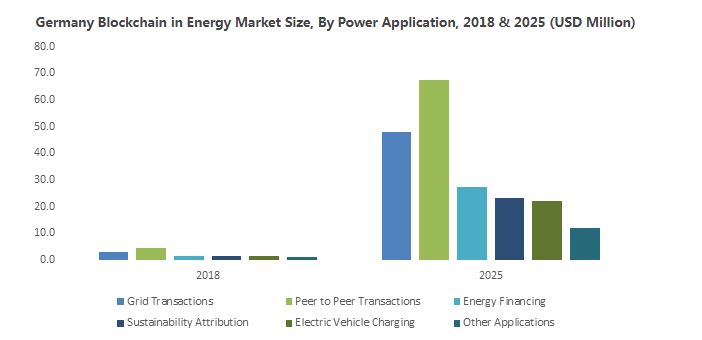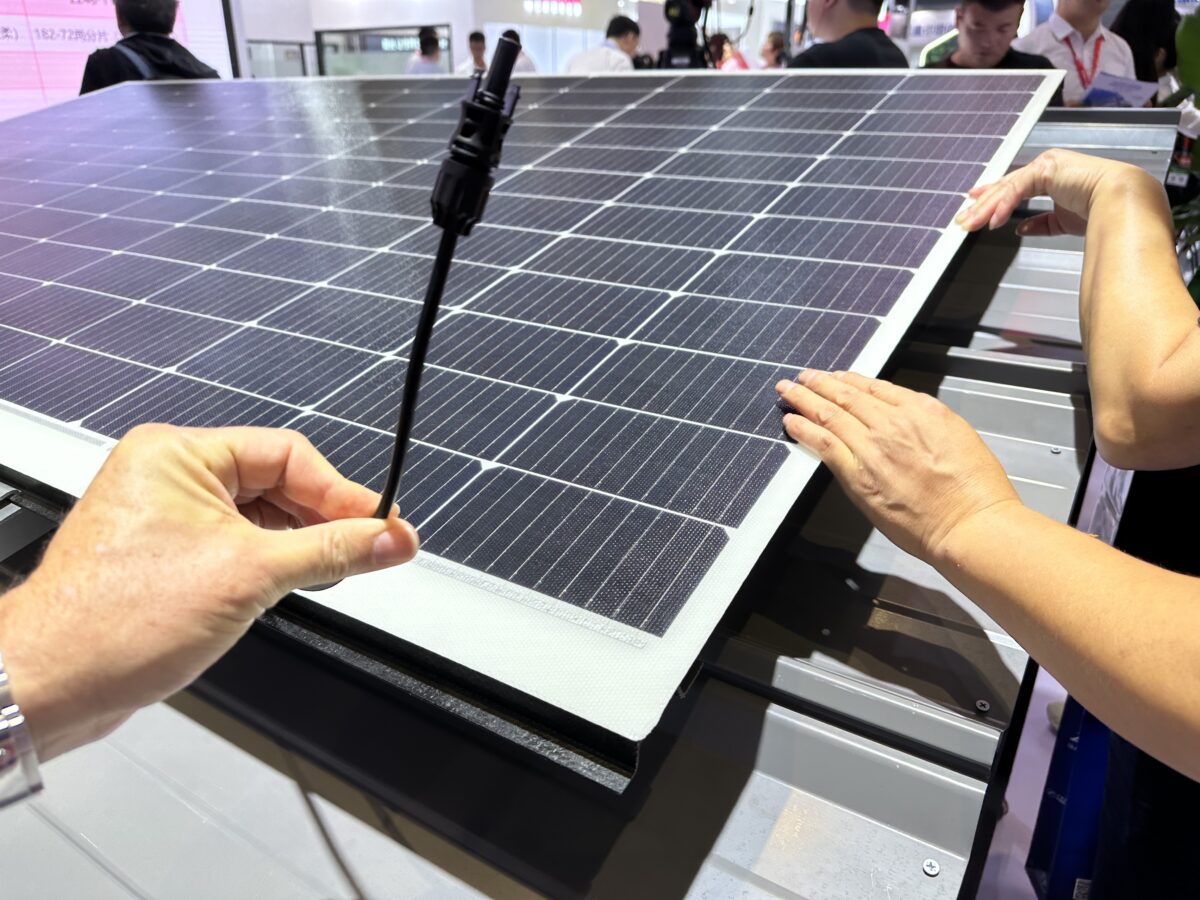The adoption of blockchain technology in the energy sector will generate over $3 billion by 2025 owing to an increase in deployment in the power, oil and gas sectors, according to Global Market Insights.

Worldwide, the deployment of blockchain technology in energy-related applications has become a trending subject of sorts among industry giants as well as the start-up investor community, with applications ranging from grid transactions, financing and transparency in supply chain. Advancements in the technology have resulted from widespread efforts to replace outdated and less secure trading and documentation platforms through digital transformation. Blockchain is deemed ideal for the energy segment since it can enable the creation of automated, auditable and transparent records of generated power and its subsequent consumption.
Even in the oil & gas industry, legacy systems are being overhauled for implementing more reliable and cutting-edge digital systems, particularly to improve operational efficiency and security. Blockchain is now pegged as one of the prime technology platforms to help energy companies achieve their digitization goals and reach a higher number of consumers.
In recent years, more and more endeavors have been taken up to increase the contribution of renewables in the overall energy mix of power grids across regions, making it essential to adopt modern grid management technologies. To support the consumption of renewables, numerous green energy purchase programs are being developed for general consumers and applied throughout North America and Europe, expanding the scope of blockchain technology in energy segment.
Blockchain in the Power Segment: Using distributed ledger technology for easier, secure energy transactions
Although cryptocurrency mining in particular has been accused of wasting energy and could probably push global warming further if performed on an enormous scale, blockchain technology itself can be utilized in a positive way. One promising area of application are microgrids, which basically are localized networks of energy production, independent of utility providers and centralized power generation facilities. These grids can include solar and wind generated power for supplying electricity to consumers, in addition to being able to sell surplus power to the central grid.
Suppliers in a microgrid would supposedly be able to receive easy and faster payments for contributing electricity through the distributed ledger technology, reinforcing the decentralization of the power industry and boosting the adoption of clean energy. The same can also be used on a larger scale by major utilities to trade amongst each other through blockchain, for enhanced security and efficiency that can reflect in lower prices for consumers.

Representing a transformational step towards implementing blockchain technology in energy sector, the non-profit organization Energy Web Foundation (EWF) has been established to bring together the energy and blockchain community. EWF provides an open source and scalable blockchain platform designed especially for the operational, regulatory and market requirements of the energy industry. Today, nearly 100 affiliates have joined EWF that will inform about key features and needs in the sector, help develop relevant applications and serve as influential mediums to thrust this emerging tech towards full-scale deployment.
Interestingly, these affiliates comprise energy giants such as Iberdrola, Total and German utility EnBW, suggesting tremendous interest in advancing blockchain technology in energy sector. The initiative is expected to fuel the growth of not only inter-trading between energy companies but also among consumers and at microgrid levels.
An innovative product unveiled last year has displayed the ability of blockchain technology to promote the development of renewable projects. Greeneum’s blockchain-powered sustainable platform allows contributors from across the globe to invest in wind, solar, hydro and other energy schemes. Its energy management system is further aimed at ensuring efficient production with regard to fluctuating power demands. The firm had apparently confirmed ongoing pilot projects with a microgrid in Israel and with a grid operator in Cyprus.
Blockchain in Oil & Gas Industry: Addressing challenges in security, operations and supply chain management
Reportedly in the first three quarters of 2018, around US$3.9 billion was raised by blockchain and crypto-based start-ups in venture capital funding, nearly 280% more than the entire 2017. It is therefore rational that various industrial applications for the technology have sprung up, including for the oil & gas sector. At present, physical trading of refined products involves several manual steps and procedures, entailing the same information to be entered in different systems for data reconciliation. By deploying the distributed ledger on a blockchain platform, data would be made available to all parties at the same time for reducing the time needed to reconcile volume and price differences.
Oil & gas corporations can evidently leverage blockchain for improving accuracy of trade, eliminate security risks related to document mailing, speed up access to data, along with making settlement and invoicing more efficient. The system would be extremely beneficial in advancing the supply chain management, which forms a significant part of an energy firm’s daily operations. With large investments anticipated over the coming years in upstream activities, building modern facilities will warrant considerable integration of digital processes.
The scope of blockchain technology in energy sector extends to disregarding the need for unnecessary back-office administration and third-party clearinghouse costs, which also bring with them certain accounting and management risks. Having a shared ledger platform allows for a trusted source of information sharing between various participants.
A vital combination of blockchain, plant equipment and sensors mounted on pipeline can seemingly be used by oil & gas companies for tracking output in real-time and automate customer invoice processing. Elaborating further, sensors would provide data accumulated from multiple points, which would then ensure accurate billing on the basis of executed contracts. The process will help customers take advantage of blockchain’s accuracy, security and increased speed of transaction, while reducing costs for the companies due to lesser staff requirement and enabling employees to be focused on more important tasks.
Over the coming years, the deployment of blockchain technology will see a rapid growth in the energy sector due to increased generation of renewable power to support sustainable initiatives, as well as attempts made by oil & gas players to enhance operational efficiency and security. Hundreds of start-ups are now eyeing this lucrative segment, both at enterprise and consumer levels, with continued backing from global energy and technology companies.







